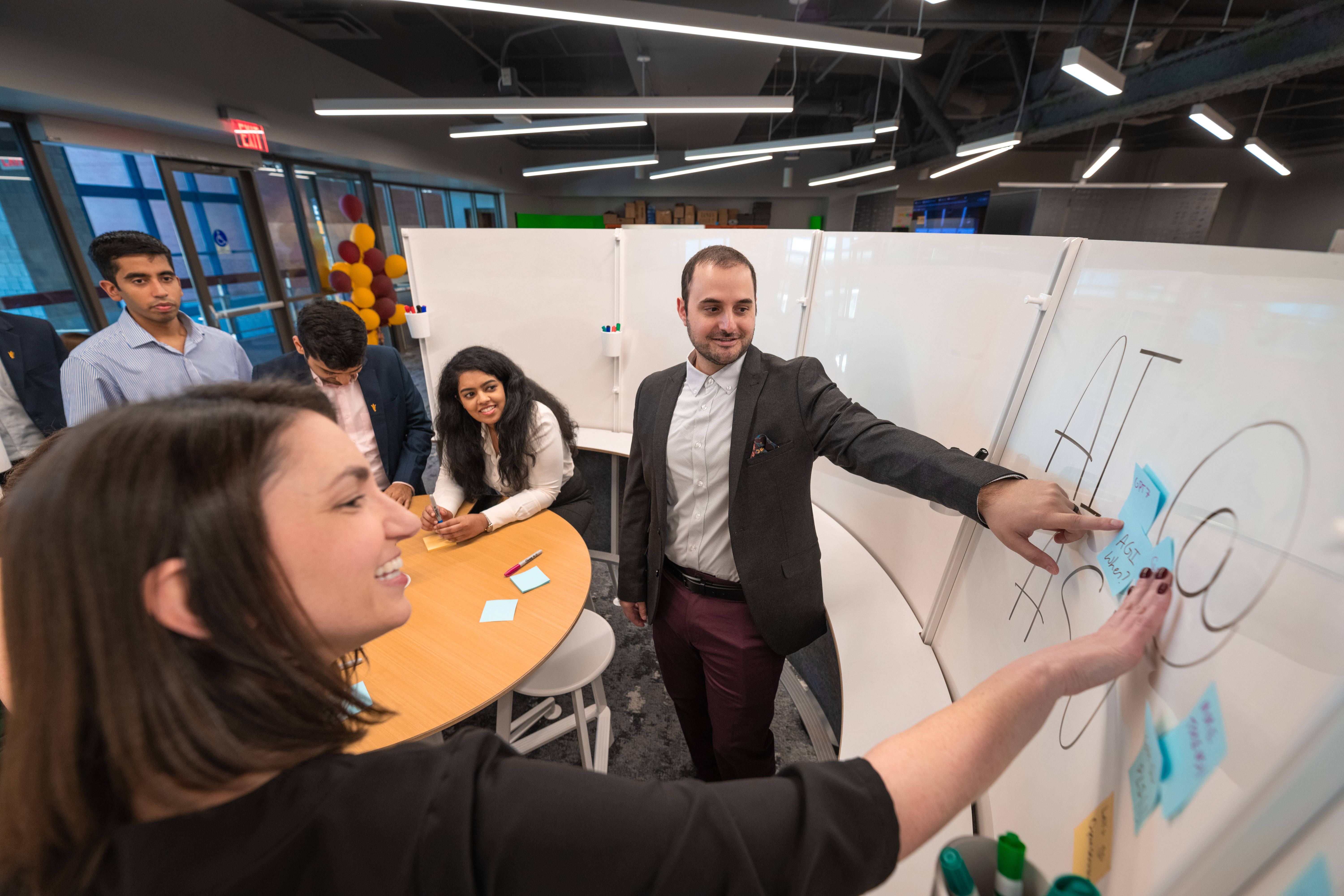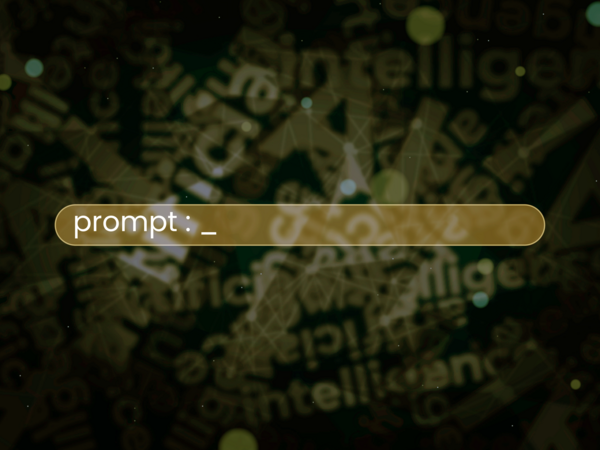
Shaping the future, today: Embracing AI
Arizona State University harnesses the power of its Knowledge Core – our faculty, staff and students – to drive AI solutions that enhance teaching, learning, research and digital transformation. This foundation enables ASU to stand at the forefront of AI, propelling the university to develop unique and transformative applications that push the boundaries of what is possible … for today, tomorrow and future generations.
ASU’s AI strategy is principled and agile, smartly navigating the universal challenges of high costs and computing limitations with a data-informed, impact-focused approach.
The Principled Innovation® Framework guides our ability to imagine new concepts, catalyze ideas and form new solutions, guided by principles that create positive change for humanity.
Shaping the future of AI
We prioritize equity, privacy, and human-centered design, ensuring that our AI solutions deliver social benefit while respecting individual rights and dignity. Through continuous research and evaluation, we strive to create technology that reduces inequities and expands access, always seeking to impact society positively.
AI guiding tenets
- AI is a powerful technology and will be an enduring part of the innovation landscape for the foreseeable future.
- Harnessing the power of AI brings the responsibility to innovate in a principled way, centering our charter and values of inclusion and access.
- AI can support human intelligence and capabilities, rather than replace them, to promote equal access to creativity and amplify potential.
- We have a responsibility to our community to keep pace with the rapid progression of AI.
- This technology must be easily accessible to people from diverse backgrounds to bridge accessibility gaps.

ASU driven programs and degrees
As a comprehensive public research university, ASU is committed to providing excellence in education through programs and initiatives that enable the success of each unique student and increase access to higher education for all.
Learn about AI Programs and degrees

AI Innovation Challenge
Arizona State University, in collaboration with OpenAI, proudly presents the AI Innovation Challenge.
Our areas of impact for this challenge include supporting teaching and learning, advancing research with societal impact and enhancing the future of work.
Our teams proudly provide approved projects with ChatGPT Enterprise license(s) at no cost to the applicant. ASU’s ChatGPT Enterprise workspace provides additional data privacy and security protections over other ChatGPT accounts.

Digital Trust guidelines for AI use
Arizona State University is committed to the practice of Principled Innovation, embracing innovation with curiosity and wisdom.
Individuals from across the campus were brought together to identify appropriate considerations for the use of Generative Artificial Intelligence (gen AI) at ASU. This group assembled guidelines that have been reviewed and approved by Enterprise Technology Digital Trust, Cybersecurity, AI Acceleration, Learning Experience and the Office of General Council.
Need help?
Please visit our AI Help page for information about faculty, staff and student resources, including workshops, tutorials, toolkits and consultations.